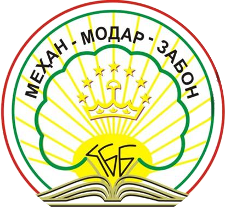Source: https://president.tj/tajikistan/constitution
At the origins of state-building process led by Emomali Rahmon was the adoption of a new Constitution of the country. For the first time in the history of Tajik statehood, this process was carried out through a nationwide referendum. The accumulated experience and values of world civilization regarding human freedom, civil rights, democratic, legal and secular society were clearly enshrined in the Constitution. This Basic Law of Tajikistan was recognized by the international community as a guiding document for sovereign state.
The establishment of constitutional power and the cardinal changes and additions that were made following the results of the XVI Session of the Supreme Council of the Republic of Tajikistan marked the beginning of a completely new stage in the system of legislation, position and status of Tajikistan, which was recognized by the international community as a sovereign state. The development and adoption of the Constitution of the independent Tajik state was at the center of the implications of this new stage.
From the history of the evolution of the legislative system in the Republic of Tajikistan and constitutional reforms at the end of the XX century, it can be concluded that attempts to develop a new Constitution of Tajikistan began in the early 1990s, but the formation of the central idea and the process of its implementation until the final stage of development and adoption of the Constitution of the Republic of Tajikistan is logically the result of the implementation of the theory and concrete measures of Honorable Emomali Rahmon aimed at promoting constitutional reforms.
The adoption of the “Declaration of State Independence of the Republic of Tajikistan”, the Resolution of the Supreme Council of the Republic of Tajikistan “On promulgation of the Declaration of State Independence of the Republic of Tajikistan” and the Resolution of the Supreme Council of the Republic of Tajikistan “On Amendments and Additions to the Declaration of Independence of the Republic of Tajikistan” in 1990-1991 were one of the factors that accelerated the process of adoption of the Constitution.
However, a truly serious and purposeful attempt to develop a draft Constitution began after the XVI Session of the Supreme Council of the Republic of Tajikistan with the founding of a constitutional system in the country and the establishment of new state authorities. Subsequently, a new composition of the Constitutional Commission headed by the Chairman of the Supreme Council Emomali Rahmon was approved at the XVII Session of the Supreme Council, by introducing amendments and additions to the Resolution of the Supreme Council of August 23, 1990 “On the formation of the Commission for the drafting of the Constitution of the Republic of Tajikistan”.
At the same meeting, Emomali Rahmon emphasized and interpreted the political essence of this nation-changing document and stated: “The most important aspect of this task is to raise state legislation to the legal and moral level of international law and their universal measures. From this point of view, we have come to the conclusion that our current system of laws must be submitted for international examination, and when revising our Constitution, the advisory assistance of relevant international institutions should be involved.
Noting the importance and necessity of adapting the legislative system of the Republic of Tajikistan to the norms of international law, the Head of Tajikistan laid the foundation for a beneficial approach to the constitutional reform of Tajikistan, which has become one of the most important foundations for the international recognition of our country.
Based on the instructions of the Head of State, the working group of the Presidium of the Supreme Council of the Republic of Tajikistan, using the achievements of jurisprudence, international law and national legal tradition and thinking, prepared two draft Constitutions in 6 months, one in the form of a presidential government, and the other in the form of a parliamentary government, and submitted to the consideration of the people. The development of two projects was not accidental. Since the development of the first draft of the new Constitution of the Republic of Tajikistan, which was presented in April 1992, the public expressed different and even completely opposite opinions based on the approach of various political and social forces of the country to the issue of choosing a form of government for the state of Tajikistan. The Constitutional Commission, realizing its responsibility and as a result of a deep analysis of the political reality of the country, due to the lack of experienced parties and organizations and a suitable basis for parliamentary government in Tajikistan, came to the unanimous conclusion to propose to the people for consideration a draft for presidential form of government.
For the first time in the history of the new Tajik statehood, on November 6, 1994, a nationwide referendum was held on the adoption of the Constitution. The result of the popular referendum was very effective: more than 87 percent of citizens supported the project and thus determined their future.
The popular approval of the draft Constitution and the election of Honorable Emomali Rahmon to the post of President of the Republic of Tajikistan that took place on that day became convincing proof of the full support for the constitutional reforms of the President, his goals, programs and prospects for domestic and foreign policy.
In the five years that passed since the adoption of the Constitution, with the strengthening of peace, stability and national unity, many noticeable changes and events in the life of society took place on the territory of Tajikistan. The connection of the new independent Tajikistan with the creative processes of the modern world, cooperation and mutually beneficial relations with countries, organizations and the recognition of international law required the harmonization and expansion of the legal horizons of the country's legislative system in order for our state to acquire the world status.
On the other hand, the Constitution was adopted in those days when the fire of hatred and confrontation, inflated by various opposition forces, had not yet died out, and the socio-political system of Tajikistan was at the stage of renewal and formation. Only three years after the adoption of the Constitution, when the tireless efforts of the Head of State to establish peace and harmony reached their logical outcome, the country entered a qualitatively new period of progress and development in all its economic and social spheres.
The need to amend and supplement the Constitution was a requirement of the process of improving the political system and raising the world status of Tajikistan and the result of the fateful initiatives of the top political leadership of the Republic of Tajikistan, who managed to direct the country from the stages of the formation of the legislative system and statehood to the status of world-class statehood.
As historical experience shows, the Constitution is a document generated by certain social conditions and relations, embodying political and social phenomena while maintaining its fundamental values. Realizing this truth and taking into account the importance of national unity in ensuring the stability and development of the Tajik state, both the top leadership of the Republic of Tajikistan and the leaders of the Union of Opposition Forces of Tajikistan decided to make appropriate changes to the Constitution in the process of long-term peace negotiations between Tajiks. According to the General Agreement on the Establishment of Peace and National Accord in Tajikistan, the body responsible for the implementation of its norms was the National Reconciliation Commission (NRC). Along with other issues that were assigned to the commission, the issue of amending the Constitution of the country was also included.
The process of developing and considering the “Conclusion on Proposed Amendments and Additions to the Constitution of the Republic of Tajikistan” took more than a year, and, finally, with the direct participation of the President of the country, Honorable Emomali Rahmon, it was possible to submit a draft to complete the constitutional procedures.
The President of the Republic of Tajikistan, in accordance with the requirements of the Constitution and the Constitutional Law of the Republic of Tajikistan "On the referendum of the Republic of Tajikistan", submitted his proposal to amend and supplement the Constitution of the Republic of Tajikistan in the Majlisi Oli. The Majlisi Oli adopted a decision “On holding a referendum of the Republic of Tajikistan on amendments and additions to the Constitution of the Republic of Tajikistan” and on September 26, 1999, a number of amendments and additions were made to the Constitution of the country through a popular referendum.
Changes and additions in the segment of the executive power mainly related to the powers of the President of the Republic of Tajikistan and extended the term of office of the President from five to seven years, gave him the right to independently create and abolish ministries and state committees, independently decide on amendments and additions to the Constitution through a referendum, determined his right to independently appoint and dismiss authorized representatives of Tajikistan (ambassadors).
In 1999, based on the amendments and additions made to the Constitution of the Republic of Tajikistan, focusing on the creation of a professional parliament, which made it possible to improve the quality of laws and more fully express the interests of individual territorial units and strata of society, the structure of the bicameral parliament was determined, and the procedure for the organization and activities of the Majlisi Oli of the Republic of Tajikistan was enshrined in the Constitutional Law of the Republic of Tajikistan “On Elections to the Majlisi Oli of the Republic of Tajikistan”.
Based on these provisions, the laws developed and adopted by the Majlisi Oli as a legislative body are implemented by the executive branch, and members of parliament participate in the appointment of officials of the country. These powers are the basis for ensuring the balance of power. The Majlisi Oli was created as a truly legislative and representative body expressing the interests of all sections of society.
In accordance with these constitutional innovations, for the first time in the political history of Tajikistan, a bicameral permanent professional parliament began to function, which had a beneficial effect on the development of the idea of national parliamentarism and the practice of democratization of the state and statehood.
Within the framework of social legitimacy and cardinal changes in the life of society and the achievements of a developing country, it was necessary to make further changes and additions to the Constitution of Tajikistan, which were implemented on June 22, 2003 through a national referendum.
The President of the country, in his concept of statehood and practical policy as the guarantor of the Constitution, interprets the improvement of legal reforms as an orderly and continuous process of civil society, a constantly changing process on the way to the perfection of a democratic state, and constantly emphasizes and recalls that, taking into account the formation of new relations in the domestic and foreign policy of the country to develop a new legal system, eliminate contradictions in legislative documents, ensure balance and a single legislative space, accurate scientific, financial, economic, social and anti-corruption expertise, create new laws for the purpose of legal regulation of market relations, banking and business activities and other development of economic institutions, drafting of a concept for predicting the development of the legislation of Tajikistan and raising the level of legal education of citizens, there should be an appropriate basis. In this regard, on May 22, 2016, new amendments and additions were made to the Constitution through a popular referendum.
As a result of the amendments and additions made in 2003 and 2016, a human, his rights and freedoms were proclaimed the highest value, nationwide referendums and elections were recognized as the highest form of direct expression of the power of the people, and political parties were recognized as elements of the political system. The purpose, content and implementation of the laws were recognized as the rights and freedoms of human and citizen, the activities of legislative, executive and local authorities, local self-government bodies, the age of 30 years and above was established for election as a deputy of the Majlisi namoyandagon and a member of the Majlisi milli.
It should be especially noted that the Constitution of Tajikistan, adopted through a popular referendum, was recognized as one of the best five constitutions in the world, and on its basis parliamentary elections were held six times to elect a central and local representative body (in 1995, 2000, 2005, 2010, 2015, 2020), the presidential elections were held six times (in 1994, 1999, 2006, 2013, 2020) with the direct participation of the people of Tajikistan, the legislative system was subjected to constitutional reforms three times through three popular referendums (in 1999, 2003, 2016), and the provisions of Article 6 of the Constitution, which declared the people the only source of state power, was implemented in practice, and the independence of the people in Tajikistan was proved.
The Constitution, using the political and legal experience of world civilization, approved the principle of division of state power as the main seal of the state system and formalized the classical method of division of state power. According to Article 64 of the Constitution, the President of the Republic of Tajikistan is the Head of State and of executive power. Executive power, as a powerful and fast-acting support of state power, belongs entirely to the President, and he, as chairman, is responsible for leading the Government of the country.
Based on the provisions of the Constitution, state power in the Republic of Tajikistan is exercised by dividing it into legislative, executive and judicial powers. Legislative power is exercised by the Majlisi Oli, executive power is exercised by the President, and judicial power is exercised by the Constitutional Court, the Supreme Court, the High Economic Court and other judicial instances.
These three pillars of state power are independent within their powers and are not subordinate to each other. However, the independence of the pillars of state power is not absolute, because none of them can perform their tasks to the extent necessary without the participation of another pillar, that is, without communication and mutual influence. For example, the adoption of laws falls within the competence of the Majlisi Oli, but the law comes into force only after it is signed by the President. Or all decrees of the President on the appointment and dismissal of members of the Government of the country are submitted for approval by the joint meeting of the Majlisi milli and the Majlisi namoyandagon Majlisi Oli. The legislative and executive powers also take part in the organization of the highest level of the judiciary of the country's structures. This mutually beneficial relationship is an effective factor both for mutual control and for establishing a balance between the pillars of state power while protecting their independence and maximum power.
 Login
Login Sitemap
Sitemap Contacts
Contacts



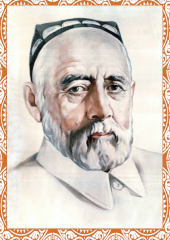 Адиб, олим ва асосгузори адабиёти муосири тоҷик. Аввалин Президенти Академияи илмҳои Ҷумҳурии Тоҷикистон. Муаллифи асарҳои «Таърихи амирони манғитияи Бухоро», «Таърихи инқилоби фикрӣ дар Бухоро», «Намунаи адабиёти тоҷик», «Дохунда», «Ғуломон», «Ёддоштҳо» ва дигар асарҳо, ки ба 29 забони хориҷӣ нашр шудаанд.
Адиб, олим ва асосгузори адабиёти муосири тоҷик. Аввалин Президенти Академияи илмҳои Ҷумҳурии Тоҷикистон. Муаллифи асарҳои «Таърихи амирони манғитияи Бухоро», «Таърихи инқилоби фикрӣ дар Бухоро», «Намунаи адабиёти тоҷик», «Дохунда», «Ғуломон», «Ёддоштҳо» ва дигар асарҳо, ки ба 29 забони хориҷӣ нашр шудаанд.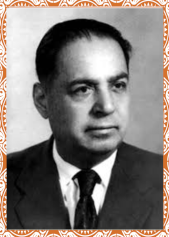 Олим, академики Академияи Илмҳои ИҶШС, арбоби ҳизбӣ ва давлатӣ, муаллифи китоби оламшумули «Тоҷикон» ва зиёда аз 300 асару мақолаҳо.
Олим, академики Академияи Илмҳои ИҶШС, арбоби ҳизбӣ ва давлатӣ, муаллифи китоби оламшумули «Тоҷикон» ва зиёда аз 300 асару мақолаҳо.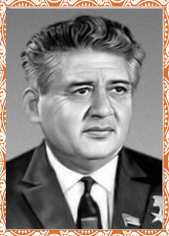 Шоири халқӣ, раиси Иттифоқи нависандагони Тоҷикистон, Қаҳрамони меҳнати сотсиалистӣ, Раиси Кумитаи якдилии халқҳои Осиё ва Африқо. Барои достонҳои «Қиссаи Ҳиндустон»(1948), «Ҳасани аробакаш», «Чароғи абадӣ», «Садои Осиё»,(1960) «Ҷони ширин» (1963) бо ҷоизаҳои давлатии ИҶШС, ҶШС Тоҷикистон ва байналмилалии ба номи Ҷ. Неҳру (1967) сарфароз шуда буд.
Шоири халқӣ, раиси Иттифоқи нависандагони Тоҷикистон, Қаҳрамони меҳнати сотсиалистӣ, Раиси Кумитаи якдилии халқҳои Осиё ва Африқо. Барои достонҳои «Қиссаи Ҳиндустон»(1948), «Ҳасани аробакаш», «Чароғи абадӣ», «Садои Осиё»,(1960) «Ҷони ширин» (1963) бо ҷоизаҳои давлатии ИҶШС, ҶШС Тоҷикистон ва байналмилалии ба номи Ҷ. Неҳру (1967) сарфароз шуда буд.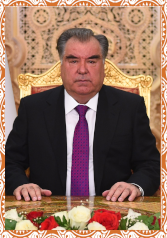 Президенти Ҷумҳурии Тоҷикистон. 19 ноябри соли 1992 дар иҷлосияи XVI Шўрои Олии Ҷумҳурии Тоҷикистон раиси Шўрои Олии Ҷумҳурии Тоҷикистон, 6 ноябри соли 1994 бори аввал, солҳои 1999, 2006 ва 2013 Президенти Ҷумҳурии Тоҷикистон интихоб гардидаст.
Президенти Ҷумҳурии Тоҷикистон. 19 ноябри соли 1992 дар иҷлосияи XVI Шўрои Олии Ҷумҳурии Тоҷикистон раиси Шўрои Олии Ҷумҳурии Тоҷикистон, 6 ноябри соли 1994 бори аввал, солҳои 1999, 2006 ва 2013 Президенти Ҷумҳурии Тоҷикистон интихоб гардидаст.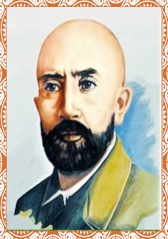 Нусратулло Махсум (Лутфуллоев) ходими давлатӣ ва ҳизбӣ. Солҳои 1924-1926 раиси Кумитаи инқилобии ҶМШС Тоҷикистон, солҳои 1926-1933 раиси Кумитаи Иҷроияи Марказии ҶШС Тоҷикистон.
Нусратулло Махсум (Лутфуллоев) ходими давлатӣ ва ҳизбӣ. Солҳои 1924-1926 раиси Кумитаи инқилобии ҶМШС Тоҷикистон, солҳои 1926-1933 раиси Кумитаи Иҷроияи Марказии ҶШС Тоҷикистон. Ходими давлатӣ ва ҳизбӣ. Солҳои 1929-1931 котиби Ҳизби коммунистии ҶШС Тоҷикистон, солҳои 1933-1937 Раиси Кумитаи Иҷроияи Марказии ҶШС Тоҷикистон.
Ходими давлатӣ ва ҳизбӣ. Солҳои 1929-1931 котиби Ҳизби коммунистии ҶШС Тоҷикистон, солҳои 1933-1937 Раиси Кумитаи Иҷроияи Марказии ҶШС Тоҷикистон.


